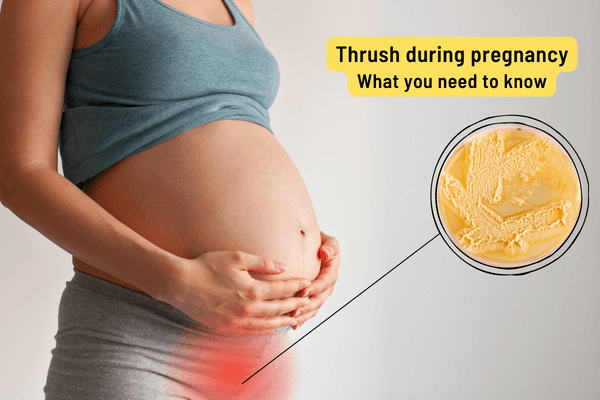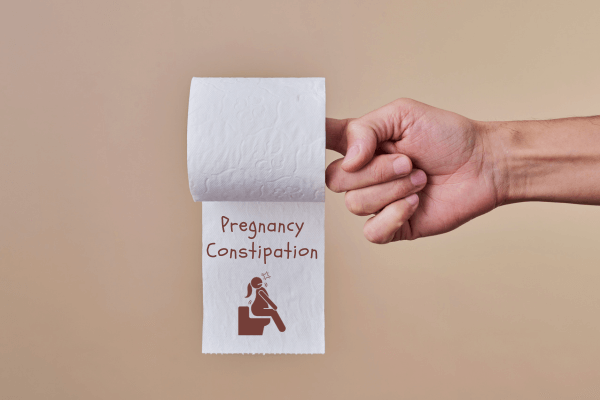You are done with the second trimester of pregnancy and are in the last leg and counting down. Congratulations! The third trimester of pregnancy is calculated from the 1st day of week 28 through the last day of pregnancy i.e. until your delivery. For expected delivery date calculations the last day of week 40 is considered as the end of the third trimester of pregnancy.
It’s a critical time for both you and your baby as significant changes and developments occur during this period. Your baby is continuing to grow and develop, gaining weight and developing their organs and systems. Meanwhile, for you, it’s essential to take extra care of yourself to ensure a healthy and safe delivery. As you enter the final months of your pregnancy, it’s crucial to be aware of the signs of preterm labor and to seek medical attention if you experience any symptoms. By taking care of yourself and your baby during the third trimester, you’ll be better prepared for the exciting journey of motherhood.
Signs of a healthy third trimester of pregnancy?
- Foetal movement: As your baby continues to grow and develop, you should feel regular movements, kicks, and jabs. This is a good sign that your baby is healthy and active.
- Braxton Hicks contractions: These are “practice” contractions that help prepare your body for labor. They may feel like mild menstrual cramps and occur randomly or in response to movement or stimulation.
- Increased vaginal discharge: As your body prepares for labor, you may notice an increase in vaginal discharge. This discharge should be thin, milky white, and odourless.
- Heartburn and indigestion: As your baby grows, they can put pressure on your stomach and cause acid reflux, leading to heartburn and indigestion.
- Shortness of breath: Your baby can also put pressure on your diaphragm and make it harder for you to breathe. This is normal and typically subsides after delivery.
- Back pain: As your baby grows, they can put pressure on your lower back, leading to discomfort and pain.
- Swelling: Many pregnant women experience swelling in their feet, ankles, and hands during the third trimester due to increased fluid retention.
- Fatigue: As your body works to support your growing baby, you may feel more tired than usual during the third trimester.
Journey of the Baby in the Third Trimester: Changes in the Foetus
- Size: In this trimester the baby goes from around 35.5 cm to about 51 cm. Picture going from the size of a zucchini to the size of a watermelon.
- Weight: The weight too increases almost 3 to 4 fold! From around 1 kg to about 3.5 – 4 kg!
- Sight: When you start the third trimester baby’s eyes can blink but by the end they are fully developed and can track dark and light, focus on large objects and can even see red colour though it will be some months after birth before they have fully developed colour vision.
- Lungs: At the start of the third trimester baby’s lungs could inflate and deflate. Over the weeks the lungs mature and even start to practise breathing. By the end they are all ready and geared up for the outside.
- Brain:Similarly the brain too was already developing rapidly at the start of the third trimester and had started to control the body temperature. During this period it grows to be three times heavier and develops more grooves and neurons. The third trimester is an exciting period in brain development and the nervous system.
- Skeletal structure: The baby’s bones continue to hoard calcium and iron and harden and strengthen, but their skull remains still flexible to help with delivery. By week 36, the baby’s head is engaged in the pelvis, in preparation for delivery.
- Digestive and Immune systems: The baby’s digestive system is maturing throughout this trimester, and they even practise swallowing and excreting waste. By the end of the trimester the digestive system is almost fully mature, and they are ready to process breast milk after birth. The baby’s immune system also develops and the baby receives antibodies from the mother to help protect them after birth.
- Skin: The baby’s skin becomes smoother and less wrinkled as they accumulate more fat. The baby’s fingernails and toenails are fully formed, and their hair continues to grow. They start to look more and more like the little person you will see at birth.
- Movement: There’s already a lot that your baby can do by this time – you must have felt the hiccups, the kicks and the restless movements though the movements will slow down towards the end as they run out of space in the uterus. Your baby can even grip things in its wee little hands.
- Senses: Your baby has a sense of touch, taste and can respond to sounds and light. If you have been singing or talking to your baby, it recognises your voice. And then there is the amazing smile it’s been practising which it will flash at you soon enough.
What are the Changes in the Mother's Body in the Third Trimester of Pregnancy?
- Increased weight gain: The mother may continue to gain weight during the third trimester, with an average of 0.5 kg per week. This is due to the baby’s growth, as well as the placenta, amniotic fluid, and increased blood volume.
- Shortness of breath: As the baby grows, they may put pressure on the mother’s diaphragm and lungs, causing shortness of breath. It may be helpful for the mother to take frequent breaks and use pillows to prop herself up while sleeping.
- Heartburn and indigestion: The growing uterus may push against the mother’s stomach, causing heartburn and indigestion. Eating smaller, more frequent meals and avoiding trigger foods can help alleviate these symptoms.
- Increased fatigue: The mother may feel more tired than usual due to the extra weight and physical demands of carrying a baby. It’s important to rest and prioritise self-care during this time.
- Back pain and pelvic pressure: The growing baby can put strain on the mother’s back and pelvis, leading to discomfort and pain. Engaging in gentle exercise, using supportive pillows, and practising good posture can provide relief.
- Swelling and fluid retention: As the body prepares for delivery, it may retain more fluids, leading to swelling in the feet, ankles, and hands. Elevating the feet, wearing supportive shoes, and staying hydrated can help manage these symptoms.
- Vaginal Discharge: Week 36th onward vaginal discharge could be marked with blood occasionally.
- Nesting Instinct: The nesting instinct kicks in during this trimester so don’t be surprised if you feel the sudden urge to clean and organise the house, decorate the nursery and buy comfy ‘blankies’.
What Should the Mother Avoid in the Third Trimester of Pregnancy?
- Food safety: Mothers should avoid consuming raw or undercooked meat, fish, or eggs, as they may contain harmful bacteria. They should also avoid unpasteurized dairy products, soft cheeses, and deli meats as they may contain listeria, which can be dangerous to the baby.
- Caffeine: While moderate caffeine intake is generally considered safe during pregnancy, excessive caffeine consumption can increase the risk of miscarriage and low birth weight. Limit their caffeine intake to 200 mg per day or less.
- Alcohol and smoking: Alcohol and smoking should be avoided completely during pregnancy, as they can cause serious harm to the baby’s development.
- Over-exertion : During the third trimester, avoid excessive physical activity, especially if you have certain health conditions or complications. It’s important to prioritise rest and self-care during this time.
- Medications : Consult your healthcare provider before taking any medications, as some may be harmful to the baby. This includes over-the-counter medications and herbal supplements.
- Travelling: Limit flying in this trimester. Some Airlines need a medical certificate after week 28 so you will need to check that if you are booking flight tickets. Most airlines allow travel as normal until week 36 but we recommend that after week 28 check with your doctor before you travel. No matter how you choose to travel though, make sure you bring along items that make your travel comfortable, it could be a favourite pillow, snacks or your favourite herbal tea to sip on. Remember to keep hydrated and to stretch your legs and walk about every few hours.
What Should the Mother Do to Stay Healthy in the Third Trimester of Pregnancy?
To ensure a healthy pregnancy, mothers should take care of themselves by following a healthy lifestyle and seeking proper medical care.
- Eat a nutritious diet: Consume a well-balanced diet that includes plenty of fruits, vegetables, lean proteins, and whole grains. Stay hydrated by drinking plenty of water and avoid foods that are high in sugar or unhealthy fats. Keep healthy snacks and your water bottle handy.
- Get enough rest: During the third trimester of pregnancy, the baby is growing rapidly, which can be physically demanding on the mother. Getting enough rest is essential to maintaining good health and energy levels. It’s important to prioritise sleep, take naps when needed, and rest as much as possible. So Rest up and look forward to cuddling your little package of joy soon.
- Stay active: Keep active with walks or gentle exercises unless your doctor forbids it. Avoid strenuous exercises though. Gentle exercise such as walking, swimming, or prenatal yoga
can help improve circulation, reduce swelling, and alleviate back pain. However, consult the healthcare provider before starting any new exercise routine. And don’t forget to keep at those Kegels!
- Attend regular prenatal check-up: Regular prenatal check-ups are important for monitoring the baby’s growth and development, as well as identifying any potential complications. Do attend all scheduled appointments with your healthcare provider and report any unusual symptoms or concerns.
- Manage stress: Stress can have negative effects on both the mother and the baby. Find healthy ways to manage stress, such as meditation, deep breathing, or talking to a trusted friend or family member.
- Book hospital: Go on that hospital tour and book the hospital if you haven’t already.
- Birth Plan: Early on in the 3rd trimester is the perfect time to consider what kind of birthing experience you want and to work on your birth plan. And think of what sort of first experiences you would like your baby to have as the latest entrant to your family – do you want late cord clamping, delayed bathing, first nursing in the birthing room, skin-to-skin etc. All of this will help you feel empowered and prepared for the birthing experience.
- Postnatal Planning: Plan the logistics of your first few weeks back at home with the baby – who will be able to help, will you have visitors and when and what are the rules for visitors on engaging with the baby.
- Prepare for mat leave: Finish all the work related responsibilities and ensure the last few weeks are light.
By following these tips, mothers can help ensure a healthy third trimester of pregnancy and give their baby the best possible start in life.
Conclusion
The third trimester of pregnancy is a significant period for both the mother and the baby. During this time, the baby undergoes rapid development and growth, while the mother experiences various physical and emotional changes. By understanding the symptoms, changes, and necessary precautions, expectant mothers can ensure a healthy and safe pregnancy.
At Veira we have resource filled online prenatal classes created by experts and vetted by doctors and pre/postnatal experts. We have highly experienced and certified maternity coaches (doulas, prenatal and childbirth educators, midwives and lactation counsellors) who work with users 1 on 1. Our coaches and experts are passionate about providing support tailored to the needs of women and new families all through pregnancy, creation of the birth plan and preparation to give birth to postnatal recovery, breastfeeding and transition back to work.
Register at Veira and you will be assured of high quality reliable information, experienced and comprehensive advice and personalised pregnancy, postnatal and breastfeeding support throughout your journey from pregnancy to babycare. Join our growing community, we would love to support you on your motherhood journey.
Watch: All About the Third Trimester of Pregnancy-
FAQs
The third trimester of pregnancy is calculated from the 1st day of week 28 and ends when you give birth. Though for purposes of calculating estimated delivery date the end of third trimester is set to last day of week 40.
The third trimester of pregnancy includes the 7th, 8th, and 9th months of pregnancy.
Pregnancy can be challenging at times, and the experience can vary from person to person. So there isn’t necessarily a specific week that is universally considered the “hardest” week of pregnancy.
That being said, many women tend to find the first trimester (weeks 1-12) challenging due to symptoms like morning sickness, fatigue, and hormonal changes. Others may find the final weeks of pregnancy (weeks 37-40) to be difficult due to discomfort, difficulty sleeping, and anticipation of labor and delivery.
It’s important to remember that every pregnancy is unique, and what one person finds challenging may be different from what another person experiences. It’s important to communicate any concerns or difficulties with your healthcare provider, who can offer guidance and pregnancy support throughout your pregnancy.
The third trimester is when the baby gains the most weight. During this trimester, which starts at week 28 and ends at birth, the baby will typically gain around 0.23 kg per week. This is because the baby is growing and developing rapidly during this time, and their organs and body systems are maturing in preparation for life outside the womb. By the end of the third trimester, the average baby weighs around 3.5-4 kg. However, it’s important to note that every baby develops at their own pace, and some may weigh more or less than this range.
During the third trimester, it’s important to monitor any changes or new symptoms that may arise. Some warning signs to look out for in the third trimester include:
- Heavy vaginal bleeding
- Severe or persistent abdominal pain
- Contractions that occur more frequently than every 10 minutes
- Sudden swelling of the hands, face, or feet
- Severe or persistent headaches
- Vision changes, such as blurriness or double vision
- Decreased fetal movement or no movement at all
- Persistent nausea or vomiting
- Chills or fever
- Pain or burning during urination
If you experience any of these warning signs or have concerns about your pregnancy, it’s important to contact your healthcare provider right away for evaluation and treatment. Early detection and treatment of any complications can help ensure a healthy outcome for both you and your baby.














































